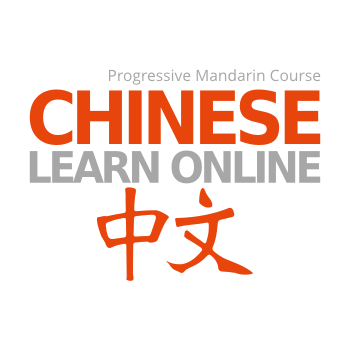你叫什么名字?(Nǐ jiào shénme míngzì?)
你的名字是什么?(Nǐ de míngzì shì shénme?)
The extended phrases to express “what is your name” in Chinese
请问您怎么称呼?(Qǐngwèn nín zěnme chēnghu?)
敢问阁下尊姓大名?(Gǎn wèn géxià zūn xìng dàmíng?)
The common expressions
你叫什么?(Nǐ jiào shénme?)
This is a simpler, more informal way to ask someone’s name. Often used in casual conversations.
e.g.
A: 你叫什么?(Nǐ jiào shénme?) What’s your name?
B: 我叫王浩,你可以叫我小王。(Wǒ jiào Wáng Hào. Nǐ kěyǐ jiào wǒ xiǎo Wáng.) My name is Wang Hao. You can call me Xiao Wang.
A: 你叫什么?(Nǐ jiào shénme?) What is your name?
B: 我叫张伟。(Wǒ jiào Zhāng Wěi.) My name is Zhang Wei.
你叫什么名字?(Nǐ jiào shénme míngzì?)
This is the most common and casual way to ask someone’s name. It’s used in both formal and informal settings.
e.g.
A: 你叫什么名字?(Nǐ jiào shénme míngzi?) What is your name?
B: 我叫李明。(Wǒ jiào Lǐ Míng.) My name is Li Ming.
A: 你叫什么名字?(Nǐ jiào shénme míngzi?) What is your name?
B: 我名叫赵磊。(Wǒ míng jiào Zhào Lěi.) My name is Zhao Lei.
你的名字是什么?(Nǐ de míngzì shì shénme?)
This is a slightly more formal way of asking someone’s name than 你叫什么?. It’s still used in casual contexts but with a little more politeness.
e.g.
A: 你的名字是什么?(Nǐ de míngzi shì shénme?) What is your name?
B: 我的名字是张玲。(Wǒ de míngzi shì Zhāng Líng.) My name is Zhang Ling.
A: 你的名字是什么?(Nǐ de míngzi shì shénme?) What is your name?
B: 我的名字是James Lee,中文名是李伟。(Wǒ de míngzì shì James Lee, zhōngwén míng shì Lǐ Wěi.)My name is James Lee, and my Chinese name is Li Wei.
你姓什么?(Nǐ xìng shénme?)
This phrase is specifically asking about someone’s family name (姓, xìng). It’s often used in Chinese culture as the family name typically comes before the given name. This is a direct way of asking for someone’s surname.
e.g.
A: 你姓什么?(Nǐ xìng shénme?) What’s your surname?
B: 我姓王。(Wǒ xìng Wáng.) My surname is Wang.
A: 你姓什么?(Nǐ xìng shénme?) What’s your surname?
B: 我姓陈。(Wǒ xìng Chén.) My surname is Chen.
The extended phrases to express “what is your name” in Chinese
您贵姓?(Nín guìxìng?)
“What is your honorable surname?” This is a more formal and respectful way of asking someone’s surname, commonly used in polite conversations or when speaking to elders or strangers.
e.g.
A: 您贵姓?(Nín guìxìng?) What is your surname?
B: 免贵姓张。(Miǎn guìxìng Zhāng.) You are being polite. My surname is Zhang.
A: 您贵姓?(Nín guìxìng?) What is your surname?
B: 免贵姓张,叫张丽。(Miǎn guìxìng Zhāng, jiào Zhāng Lì.) My surname is Zhang, and my name is Zhang Li.
请问您怎么称呼?(Qǐngwèn nín zěnme chēnghu?)
This is a polite way to ask someone’s name, commonly used when you are unsure of how to address someone. It’s often used in both formal and polite situations.
e.g.
A: 请问您怎么称呼?(Qǐngwèn nín zěnme chēnghu?) How should I address you?
B: 你可以叫我李先生。(Nǐ kěyǐ jiào wǒ Lǐ xiānsheng.) You can call me Mr. Li.
A: 请问您怎么称呼?(Qǐngwèn nín zěnme chēnghu?) How should I address you?
B: 叫我小张就可以了。(Jiào wǒ xiǎo Zhāng jiù kěyǐ le.) You can call me Xiao Zhang.
敢问阁下尊姓大名?(Gǎn wèn géxià zūn xìng dàmíng?)
A very formal and respectful way of asking someone’s name. It’s rarely used in daily conversations but could be seen in literary or highly formal contexts. “May I ask your esteemed surname and full name?”
e.g.
A: 敢问阁下尊姓大名?(Gǎn wèn géxià zūn xìng dà míng?) May I ask your esteemed surname and full name?
B: 我姓刘,名伟。(Wǒ xìng Liú, míng Wěi.) My surname is Liu, and my full name is Wei.
A: 敢问阁下尊姓大名?(Gǎn wèn géxià zūn xìng dà míng?) May I ask your esteemed surname and full name?
B: 在下孙强。(Zàixià Sūn Qiáng.)My name is Sun Qiang.
请问你是……吗? (Qǐngwèn nǐ shì… ma?)
This is a more polite way to ask someone’s name when you’re trying to confirm their identity.
e.g.
A: 请问你是李先生吗?(Qǐngwèn nǐ shì Lǐ xiānsheng ma?) May I ask, are you Mr. Li?
B: 是的,我是李明。(Shì de, wǒ shì Lǐ Míng.) Yes, I am Li Ming.
A: 请问你是李老师吗?(Qǐngwèn nǐ shì Lǐ lǎoshī ma?) May I ask, are you Teacher Li?
B: 是的,我是李老师。(Shì de, wǒ shì Lǐ lǎoshī.) Yes, I am Teacher Li.
喂,请问哪位?(Wèi, qǐngwèn nǎ wèi?)
It’s commonly used when answering the phone to ask who’s on the other line.
e.g.
A: 喂,请问哪位?(Wèi, qǐngwèn nǎ wèi?) Hello, may I ask who’s calling?
B: 我是张先生。(Wǒ shì Zhāng xiānshēng.) This is Mr. Zhang.
喂,请问……在吗?(Wèi, qǐngwèn……zài ma?)
It’s used when calling someone on the phone to ask if the person you’re looking for is available.
e.g.
A: 喂,请问李先生在吗?(Wèi, qǐngwèn Lǐ xiānshēng zài ma?) Hello, is Mr. Li there?
B: 李先生在,他刚刚接到一个电话。(Lǐ xiānshēng zài, tā gānggāng jiēdào yīgè diànhuà.) Mr. Li is here; he just received a phone call.
A: 喂,请问王经理在吗?(Wèi, qǐngwèn Wáng jīnglǐ zài ma?) Hello, is Manager Wang there?
B: 王经理在的。(Wáng jīnglǐ zài de.) Yes, Manager Wang is here.
The post Various ways to say “What is your name” in Chinese appeared first on .

